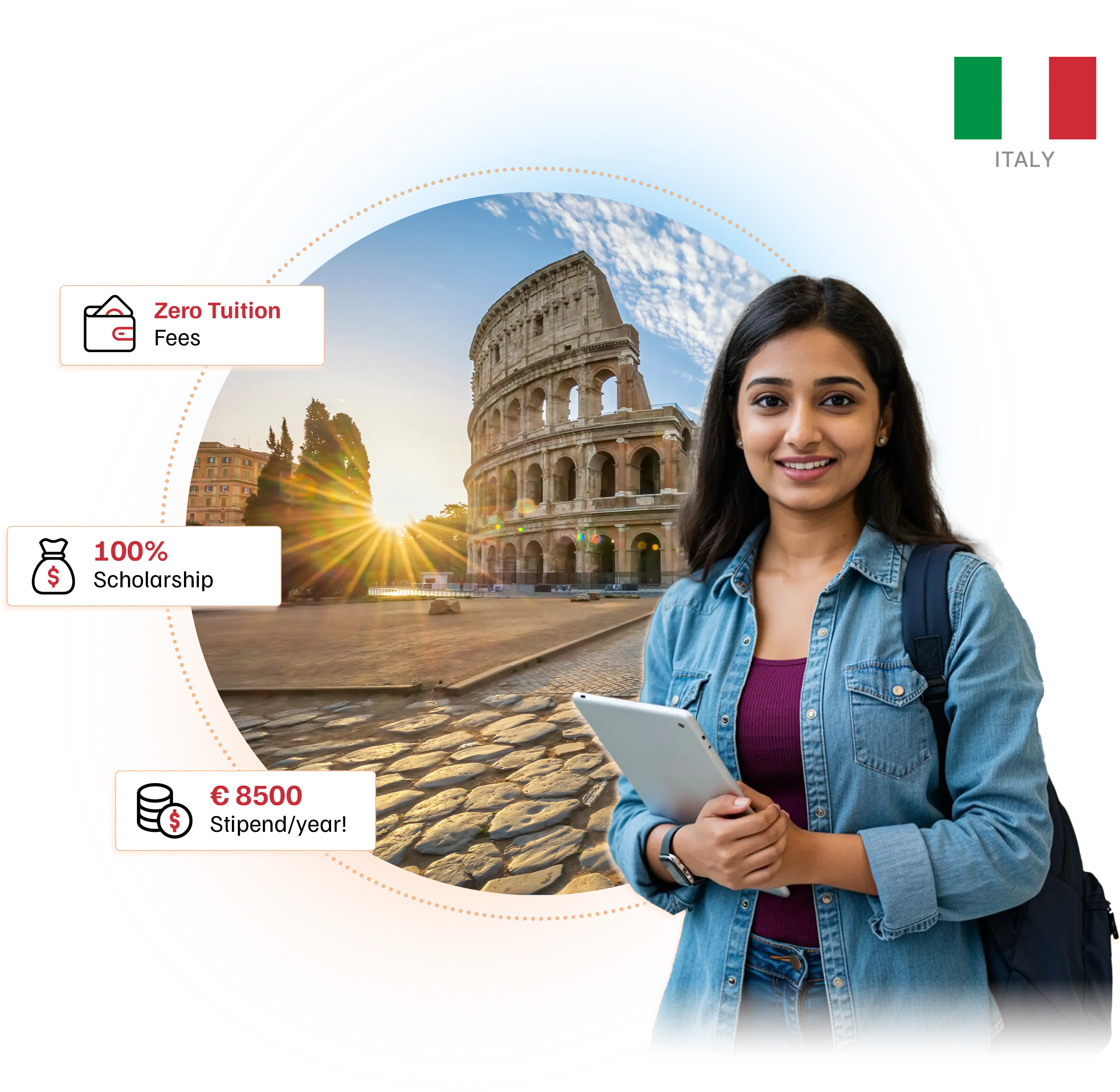Frequently Asked Questions
Is education in Italy affordable for international students?+
Yes, Italy offers high-quality education at relatively low tuition fees, especially in public universities. Tuition can range from €1,000 to €4,000 per year, and many scholarships are available.
Are there English-taught programs in Italy?+
Yes, many Italian universities offer programs taught entirely in English, especially at the master's and postgraduate levels.
What are the eligibility requirements to study in Italy?+
You need academic transcripts, proof of language proficiency (English or Italian), a passport, a motivation letter, and possibly letters of recommendation. Some programs may also require entrance exams.
Do I need to know Italian to study in Italy?+
Not necessarily. If you enroll in an English-taught program, Italian is not required. However, learning basic Italian is helpful for daily life and part-time jobs.
Is IELTS or TOEFL required to study in Italy?+
Yes, for English-taught programs, universities typically require proof of English proficiency through exams like IELTS or TOEFL.
What are the living expenses for students in Italy?+
Living costs vary by city. In cities like Milan or Rome, you may need €800–€1,200/month, while smaller cities may cost around €600–€900/month.
Are scholarships available for international students in Italy?+
Yes, Italian universities and the government offer scholarships like the DSU and MAECI scholarships, which can cover tuition, accommodation, and living expenses.
Can international students work while studying in Italy?+
Yes, international students can work part-time for up to 20 hours per week during the semester and full-time during holidays.
Do I need a visa to study in Italy?+
Yes, non-EU students require a long-stay student visa (type D). After arriving in Italy, you must also apply for a residence permit (Permesso di Soggiorno).
Can I stay in Italy after graduation?+
Yes, international students can apply for a temporary residence permit (Permesso per Attesa Occupazione) to stay for up to 12 months and search for work.









.gif)


